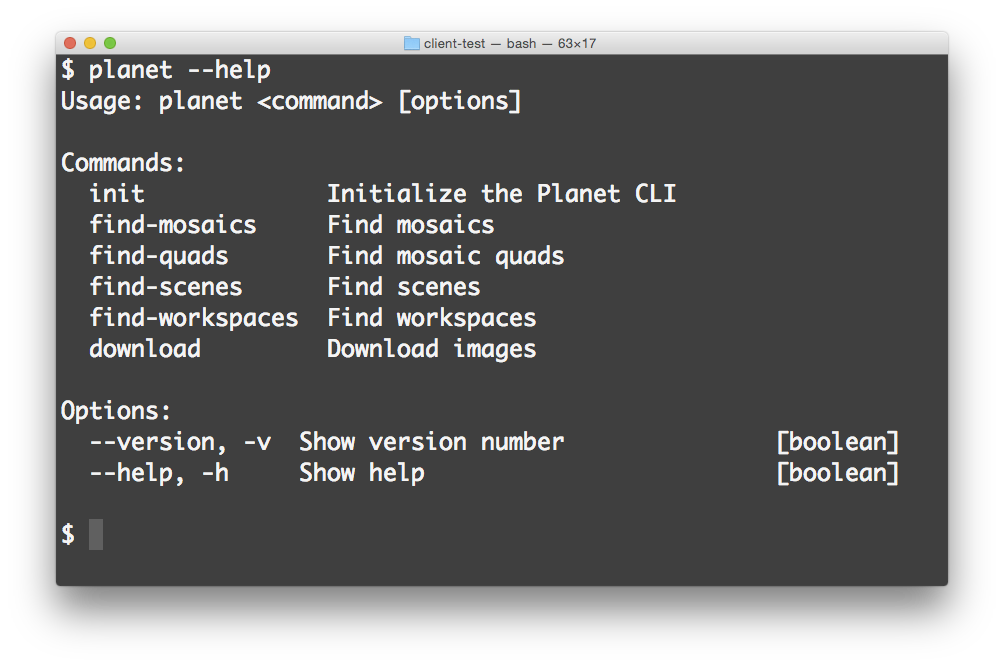planet-client
v1.2.0
Published
A client for Planet's imagery API
Downloads
79
Readme
planet-client
A JavaScript client for Planet's imagery API.
Installation
The planet-client requires Node >= 0.12. Install the planet-client package npm (which comes with Node).
npm install planet-clientThe planet-client package provides a library for use in your application and a planet executable for command line use. See details on both below.
Using the Library
The planet-client package can be used in a Node based project or in the browser with a CommonJS module loader (like Browserify or Webpack).
The library requires a global Promise implementation. This comes with Node >= 0.12 and modern browsers. To use planet-client in an environment without Promise, you can use a polyfill.
See the examples directory for example use of the library.
Using the CLI
The planet-client package provides a planet executable. This can be installed globally (npm install --global planet-client), or if you install it locally, you can add the executable to your path (export PATH=path/to/node_modules/.bin:$PATH).
The general syntax for the planet executable is planet <command> [options]. To see a list of commands, run the following:
planet --helpYou can get help for a specific command by adding --help to the command name (e.g. planet find-scenes --help).
To take advantage of command line completion with the planet executable, you can run the following in bash:
eval "$(planet completion)"To enable this every time you start a new shell, you can append the output of planet completion to your .bashrc:
planet completion >> ~/.bashrcThe CLI will be fully documented when it is a bit more stable. For now, you can get a preview of what's available with this video:
Contributing
To get set up, clone the repository and install the development dependencies:
git clone git@github.com:planetlabs/planet-client-js.git
cd planet-client-js
npm installRunning the tests
The tests are run in a browser and in Node. You can run the linter and all tests once with the following:
npm testTo start a file watcher that runs the linter and tests with any file changes:
npm startWith the npm start task running, you can attach any number of browsers to the test server. Every time you attach a new browser, tests run in all browsers. To debug any failing test, visit the test runner debug page and open your development console.
Building the docs
The project docs are generated from templates in the doc directory. The API docs are generated based on annotations in comments throughout the api modules. You can build the docs with the following task:
npm run docIf you are making frequent changes and want to rebuild the docs with each change, use the npm run start-doc task. You can view the doc output in the build/doc directory.
Note - Building the docs requires Node >= 4.0.
Publishing a release
Releases are published from the master branch. To cut a new minor release, do this:
npm version minor && git push --tags origin master && npm publishThe postpublish script will update the hosted version of the docs.
Note - Publishing a release requires Node >= 4.0.
License
© Planet Labs, Inc.
Licensed under the Apache License, Version 2.0 (the "License"); you may not use this file except in compliance with the License.
Unless required by applicable law or agreed to in writing, software distributed under the License is distributed on an "AS IS" BASIS, WITHOUT WARRANTIES OR CONDITIONS OF ANY KIND, either express or implied. See the License for the specific language governing permissions and limitations under the License.


